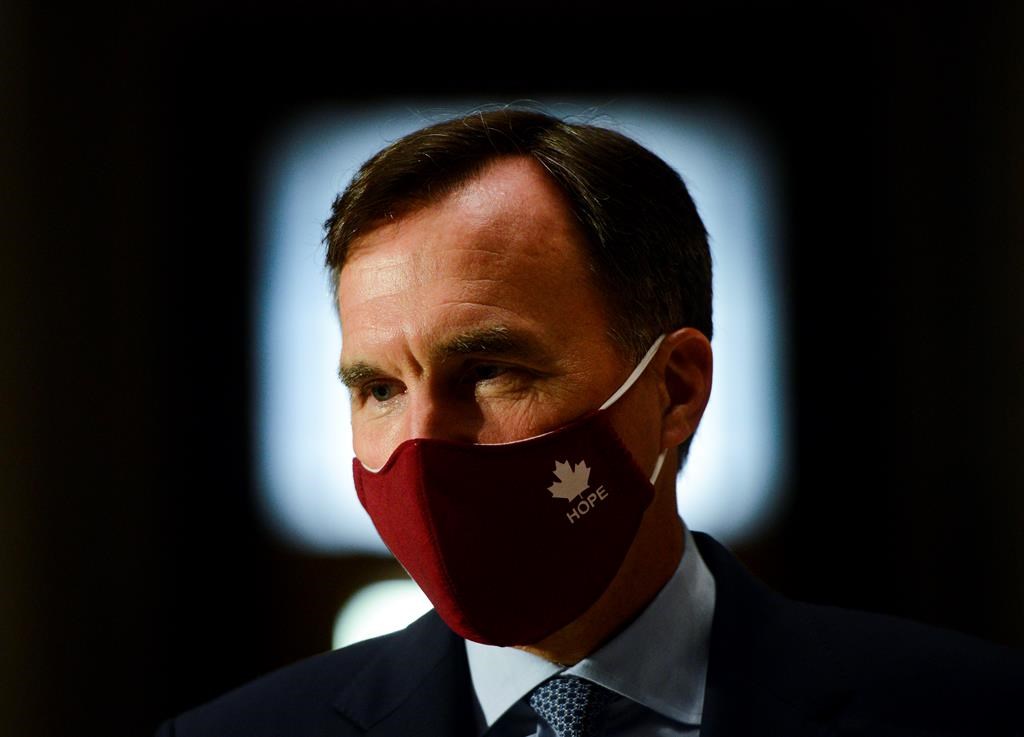Given that he is no longer Canada’s finance minister, I suspect Bill Morneau is feeling rather hard done by these days.

However, I hope he appreciates the rather charitable decision this week in his favour from the federal ethics watchdog.
Ethics commissioner Mario Dion isn’t through with Morneau, mind you — there are still investigations underway into whether both Morneau and Prime Minister Justin Trudeau violated the Conflict of Interest Act by failing to recuse themselves from the cabinet decision to award a student grant program to WE Charity.
But on the question of whether the former finance minister failed to disclose a gift from WE Charity, Morneau is the recipient of a considerable helping of benefit of the doubt.
This all concerns two trips Morneau and his family took in 2017 to get a first-hand look at WE Charity’s projects in Kenya and Ecuador. Three years later — and after two separate $50,000 donations from Morneau’s wife through their family foundation to WE Charity — Morneau claims he became aware that he had not paid the cost of those two trips.
In late July — after the government arrangement with WE Charity had fallen apart — Morneau says he wrote a cheque for just over $41,000 to settle up this apparent debt.
Following his investigation, Dion concluded that Morneau “genuinely believed” he had paid for the two trips. And, in fairness, it’s entirely possible that Morneau is telling the truth on that point. But such a defence does not reflect well on the former finance minister.
How many Canadians would have any degree of uncertainty about whether they had settled an outstanding debt of over $40,000? How many Canadians wouldn’t notice that they had $40,000 more than they should in their bank account? It’s almost as though Morneau’s immense wealth is part of the excuse here.
Also, if Morneau was responsible for covering the costs of the trip, why didn’t he simply pay up front? Why did WE Charity foot the bill on his behalf? And if WE Charity felt it was owed money from Morneau, why did it not simply ask him to repay? Why would none of this have come up on the two occasions that the Morneau family donated $50,000?
Furthermore, why even take the trip in the first place? It’s hard to see how this was relevant to Morneau’s duties as finance minister and it didn’t exactly square with the directive that “ministers and parliamentary secretaries must not accept sponsored travel.”
This all reflects poorly on Morneau’s judgment, to be sure. Let’s not forget, either, that the same year he took these trips was the same year we learned that he had opted not to put his assets in a blind trust and also that he had failed to disclose a villa he owned in France.
But despite Morneau being pushed out as finance minister, this is all still very much a story about the government he was once a part of. Between prorogation and filibusters and confidence vote brinksmanship, the Liberals seem very eager to avoid further scrutiny over this scandal.
As we saw with the two previous ethics commissioner rulings that went against the prime minister, it’s not just the former finance minister who was suffering from apparent ethical lapses. There seems to be a recurring theme here.
Given the roadblocks encountered elsewhere by those seeking to get to the bottom of this whole affair, we have become somewhat reliant on the work of the ethics commissioner in trying to fill in some of the blanks here.
While this decision might raise some questions, hopefully, the commissioner’s work on the conflict of interest questions will be a serious and thorough examination of what transpired with regard to the decision to award this program to WE Charity — and one that will provide some answers to a deserving Canadian public.
Rob Breakenridge is host of ‘Afternoons with Rob Breakenridge’ on Global News Radio 770 Calgary and a commentator for Global News.








Comments